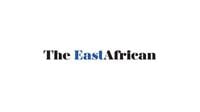
An aerial view of KCB headquarters (L) and Equity Centre (C) in Upper Hill, Nairobi. Both banks, with an expansive network in the region, are taking a cautious view of the economies in the wake of rising inflation, growing interest rates, weakening currencies and a shortage of the US dollar. PHOTO | DIANA NGILA | NMG
East Africa’s biggest retail banks KCB and Equity Group are cautious to protect their earnings even after a bumper year in which they reaped big profits.
The two lenders with an expansive network in the region are taking a cautious view of the economies in the wake of rising inflation, growing interest rates, weakening currencies and a shortage of the US dollar.
The volatile situation has been compounded by persistent mass protests in Kenya over the high cost of living, which are taking a toll on economic activities.
Last year, Equity and KCB jointly increased their statutory loan reserves — the amount set aside from company net profits, funds and other assets to meet future liabilities — by KSh20.15 billion ($151.85 million). Audited financial statements for last year show that Equity Group has more than doubled its loan loss provisions and increased its statutory loan loss reserves by 825 percent to deal with the uncertainties.
It has also increased its proportion of foreign currency holding to 48.5 percent from 44.1 percent and reduced the portion of loans awarded to MSMEs from 28 percent to 25 percent.
KCB Group more than tripled its statutory loan reserves and increased loan loss provisions during the same period.
Read: KCB names new heads for Rwanda, NBK
KCB also opted to go against the industry trend by cutting its dividend payments to shareholders by 33 percent to preserve capital, despite its net earnings for the 12 months to December 31, 2022 growing by 19.5 percent to KSh40.8 billion ($307.47 million).
Previous year
Equity Group more than doubled its loan loss provisions to KSh15.41 billion ($116.12 million) from KSh5.84 billion ($44.01 million) in the previous year (2021) and increased statutory loan loss reserves by 825 percent to KSh1.58 billion ($11.9 million) from KSh171.03 million ($1.29 million).
Equity’s latest strategic decision comes as the lender’s performance in Tanzania and Uganda continuous to be adversely impacted by a rising number of loan defaulters.
Equity Bank branch in Nairobi County, Kenya. PHOTO | NMG
The group’s audited financial statements released last week paint Tanzania as a market that poses the highest risk of loan default, with a non-performing loan (NPL) ratio of 18.9 percent, followed by Uganda (12.6 percent), Kenya (7.4 percent), Rwanda (seven percent), Democratic Republic of Congo (5.2 percent) and South Sudan (0.1 percent).
Equity group’s gross NPLs grew by 17 percent to KSh63.13 billion ($475.75 million) last year (2022) from KSh53.85 billion ($405.81 million) in 2021.
The sectors most hit by loan defaults include SMEs (12.8 percent), agriculture (eight percent), large enterprises (5.5 percent), micro-enterprises (3.2 percent), and consumer sector (3.1 percent).
But Equity’s general level of NPLs stands at 7.7 percent compared to the industry average of 13.3 percent.
KCB group more than tripled its statutory loan reserves to KSh26.7 billion ($201.21 million) from KSh7.95 billion ($59.91 million) and increased loan loss provisions by 1.68 percent to KSh13.2 billion ($99.46 million) from KSh12.98 billion ($97.81 million).
Its gross NPLs grew by 31 percent to KSh161.2 billion ($1.21 billion) in 2022 from KSh122.85 billion ($925.8 million) in 2021.
KCB which has operations in Kenya, Tanzania, South Sudan, Rwanda, Uganda, Burundi and DR Congo projects its NPL ratio for 2023 to be between 15 and 17 percent.
Read: Uncertainty greets South Sudan dollar policy
Equity Group declared a 33 percent growth in dividend pay-out to shareholders after its net profit for the 12 months to December grew by 14. 6 percent to KSh44.89 billion ($338.29 million), helped by increased forex trading and investment in government securities.
The lender, which is listed on the Nairobi Securities Exchange, has reserved KSh15.1 billion ($113.79 million) for shareholders compared to KSh11.3 billion ($85.16 million) in 2021, translating to a dividend per share of KSh4($0.03) per from KSh3($0.02) per share.
Nairobi Securities Exchange on the trading floor at the Exchange Building in Nairobi, Kenya on August 26, 2020. PHOTO | NMG
The dividend will be payable on or before June 30, subject to shareholder and regulatory approvals.
Dividend season
Equity, which has operations — DR Congo, Kenya, Uganda, Tanzania, South Sudan, Rwanda and a representative office in Ethiopia — became the latest amongst a string of listed banks to reward shareholders with hefty dividends.
Other lenders that have announced dividends to shareholders include Stanbic bank Kenya, Standard Chartered Bank Kenya, Absa Bank Kenya, Co-operative Bank and Diamond Trust Bank.
KCB however cut its dividend pay-out by 33 percent.
Equity Group’s total operating income grew by 28.7 percent to KSh145.93 billion ($1.1 billion) from KSh113.38 billion ($851.57 million) with regional subsidiaries contributing 44 percent of the total revenues.
“The Group’s 2022 results reflect the resilience that the business has developed due to deliberate and intentional leadership and management decisions through interest capping period and Covid-19 pandemic environment,” Equity Group CEO James Mwangi told an investor briefing last week.


No comments:
Post a Comment